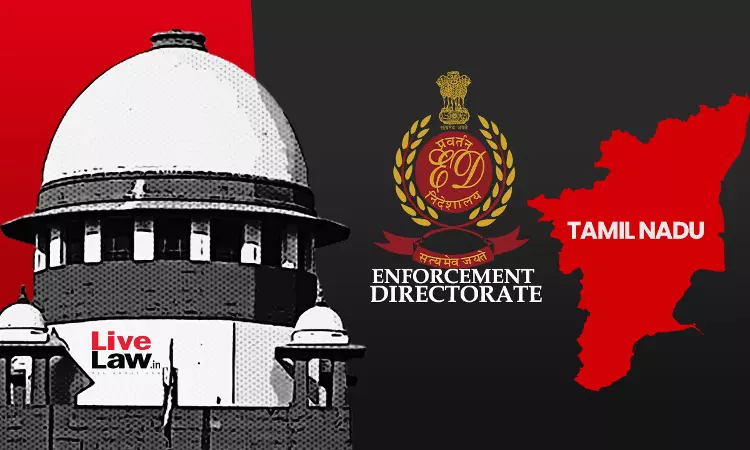ED v. Tamil Nadu | Can't There Be Judicial Oversight Before Coercive Orders Are Passed? Supreme Court Asks ED
Debby Jain
11 March 2024 10:14 PM IST

Next Story
11 March 2024 10:14 PM IST
The Supreme Court today posted to March 20, 2024 a plea by the ED seeking transfer of investigation into bribery allegations against one of its officers from Tamil Nadu State authorities to CBI.The order was passed by Bench of Justices Surya Kant and KV Viswanathan, to enable the agency to file a rejoinder.Simultaneously, notice was issued in a connected petition filed by the accused-ED...
